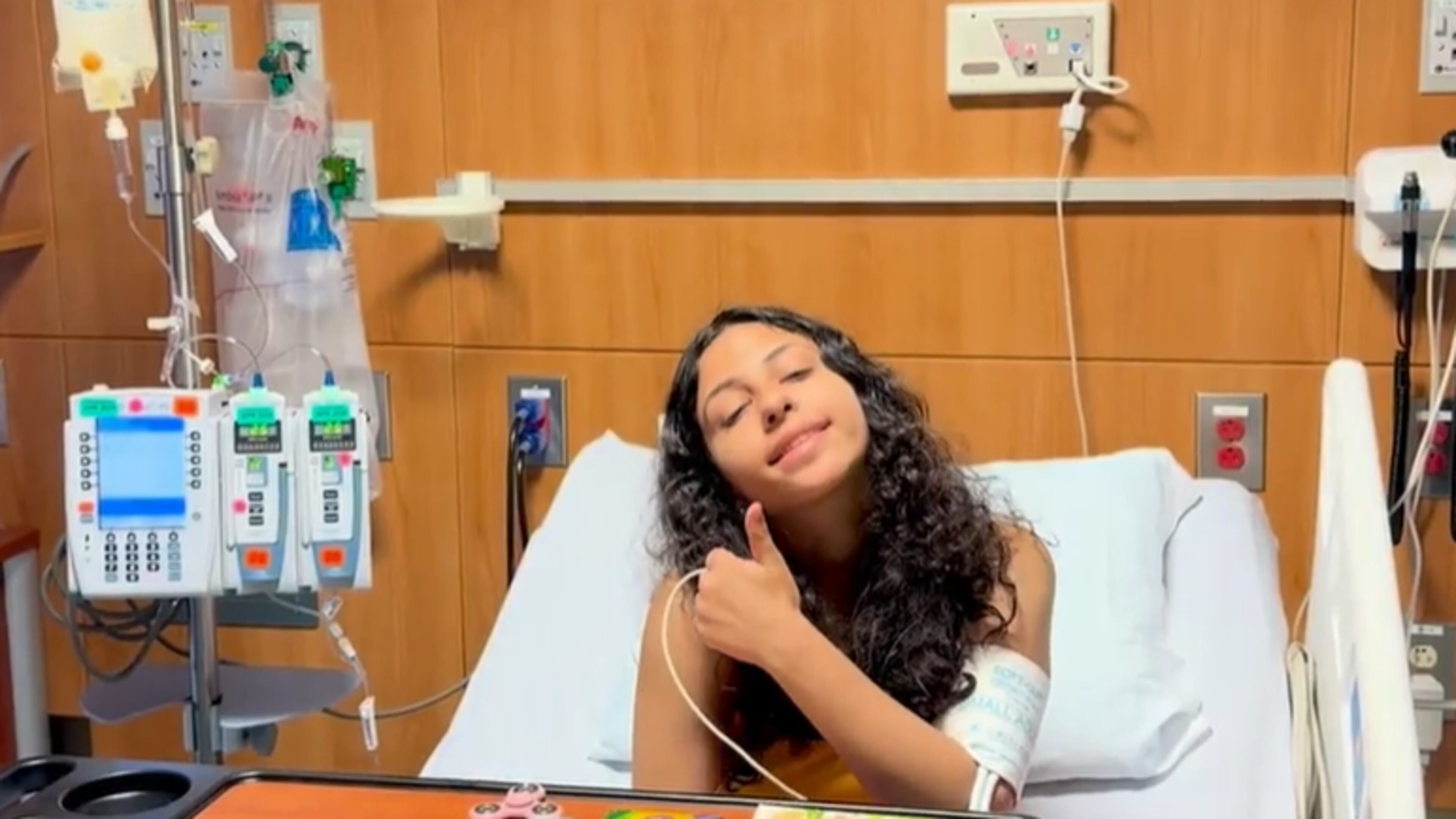Georgia teen among first to receive ‘breakthrough’ diabetes treatment

A 15-year-old Columbus girl is among the first pediatric patients in the world to receive a new medication shown to delay the onset of Type 1 diabetes by 2 to 7 years and possibly prevent the condition from ever developing.
Piedmont Columbus Regional Midtown announced last week that it treated Ella Velez with prescription infusions of teplizumab, marketed under the brand name Tzield, a new FDA-approved medication that slows the start of the chronic condition. Tzield has been used to treat more than 250 people with diabetes worldwide, according to manufacturer Sanofi.
Diabetes prevents the body from making the insulin hormone that helps regulate the use of food sugar for energy. The condition can lead to severe, and in some cases, life-threatening complications such as heart, kidney and eye disease.
There are two main forms of diabetes: Type 1, formerly called juvenile diabetes, and Type 2, the most common kind, formerly called adult-onset diabetes.
Type 1 diabetes is usually diagnosed in children and young adults and symptoms often develop quickly and are more severe, according to the Mayo Clinic. About 304,000 children and adolescents are among 2 million Americans who have Type 1 diabetes, the American Diabetes Association (ADA) reports. The Centers for Disease Control and Prevention in Atlanta estimate that 34 million adults in the U.S., or 10.5% of the population, have diabetes and adults with Type 1 diabetes account for 5-10% of all diagnosed cases.
Type 2 diabetes is more common in those older than 45 who are overweight or obese and have high blood pressure or high cholesterol, among other factors, according to the Cleveland Clinic.
Both types of diabetes require lifestyle changes, such as monitoring glucose levels, eating a healthy diet and exercise. Some diabetes patients, especially those who have later stages of the condition, have to regularly take synthetic insulin to manage their sugar levels.
Tzield is expected to help patients like Ella avoid the need for insulin injections. “It’s so cool that I get to have a normal life,” Ella said about the results of the new medication.
Dr. Steven Leichter, a Piedmont Columbus Regional endocrinologist, treated Ella and his practice participated in the Tzield clinical trials. He called the medicine life-changing and a breakthrough for healthcare delivery with the potential of completely eliminating diabetes for some patients.
“Maybe this drug can stop someone from their whole life getting Type 1 diabetes. Preliminary data suggests it might. It can modify the autoimmune process and stop it from progressing,” Leichter said.
Piedmont Columbus Regional is one of the few facilities in the country to offer Tzield, which involves infusions for 14 consecutive days followed by consistent monitoring. The medical facility was able to offer the treatment to Ella as it prepares to open a new children’s hospital capable of providing such infusions in the future.
A new screening strategy developed by the medical center will allow healthcare professionals to begin identifying candidates eligible to receive the infusion before they get diabetes. Starting July 1, pediatricians and primary care doctors in Columbus and the surrounding area will be able to screen for patients who might qualify for Tzield.
Atlanta endocrinologist Jim Gavin, a former ADA president, called Leichter’s work with Tzield extremely exciting.
“It’s one step forward in precision medicine, and to have it happen in Columbus, Georgia, is equally exciting,” said Gavin chief medical officer of Healing Our Village in Atlanta. More typical of larger research-oriented medical centers, the screening of patients in a smaller community proves it can be duplicated on a wider scale, he said.
Patients eligible for the treatment are typically relatives of someone with Type 1 diabetes. The patients must be at least 8 years old, with stage 2 Type 1 diabetes. Stage 2 indicates their bodies can still produce insulin. Eligible patients must also have two or more indicators of diabetes and have abnormal blood sugar levels.
Leichter said those with a family history of Type 1 diabetes may be up to 15 times more likely to develop it.
Ella, who has stage 2, Type 1 diabetes, qualified as a candidate for the medication when her 14-year-old brother, Alex, was diagnosed with stage 3 Type 1 diabetes in December 2019. At stage 3, the disease is associated with significant health risks.
Leichter’s practice participated in clinical trials, which included Alex, for the use of Tzield in early stage 3 Type 1 diabetes. After those trials, doctors decided to test Ella for diabetes-related antibodies, thinking she might qualify for the drug based on ADA screening guidance, and one appeared. They monitored Ella for nearly two years, during which time her condition began to decline and she was at risk of developing diabetes.
A competitive gymnast, Ella said she previously worried about having to take breaks from training for juice or a snack to regulate her sugar level. She saw how Alex had to sit or lay down when his blood sugar dropped.
Alex, who is dependent on insulin, said he was glad to have participated in one of the early clinical trials for Tzield “so my sister could be more active.”
The siblings’ parents hope Ella and other children like her will never have to take insulin and constantly monitor their diet. Luis Velez recalled how his son Alex becomes disoriented, shakes, and can’t speak properly if his blood sugar is too high or low.
“I deal with my son’s diabetes every day,” said their mother, Lorna. She was glad her son’s clinical trial participation could help others avoid his diabetic experiences. “It’s awesome that their worlds are not stressful.”
Defining Diabetes
Diabetes is a condition preventing the body from making the insulin hormone that helps regulate the use of food sugar for energy. The condition can lead to severe, and in some cases, life-threatening complications such as heart, kidney, and eye disease.
Type 1: A condition in which high blood glucose (sugar) levels result from a lack of insulin. The condition occurs when the body’s immune system attacks the insulin-producing cells in the pancreas and destroys them, causing the pancreas to produce little or no insulin. Type 1 diabetes most often affects young people but can appear in adults.
º Stage 2: The body can still produce insulin, so patients in this stage don’t require insulin injections.
º Stage 3: Associated with significant health risks, some of which can be life-threatening. Patients in this stage eventually require insulin injections for life.
Type 2: A condition in which high blood glucose (sugar) levels result from either a lack of insulin or the body’s inability to use insulin efficiently. Type 2 develops most often in middle-aged and older adults but can appear in young people.
Common diabetes symptoms: Frequent urination, feeling thirsty or hungry, extreme fatigue, blurred vision, slow-healing cuts or bruises. Type 1 may include weight loss, even if you are eating more, and type 2 may include tingling, pain, or numbness in the hands or feet.
Sources: American Diabetes Association and Cleveland Clinic.


